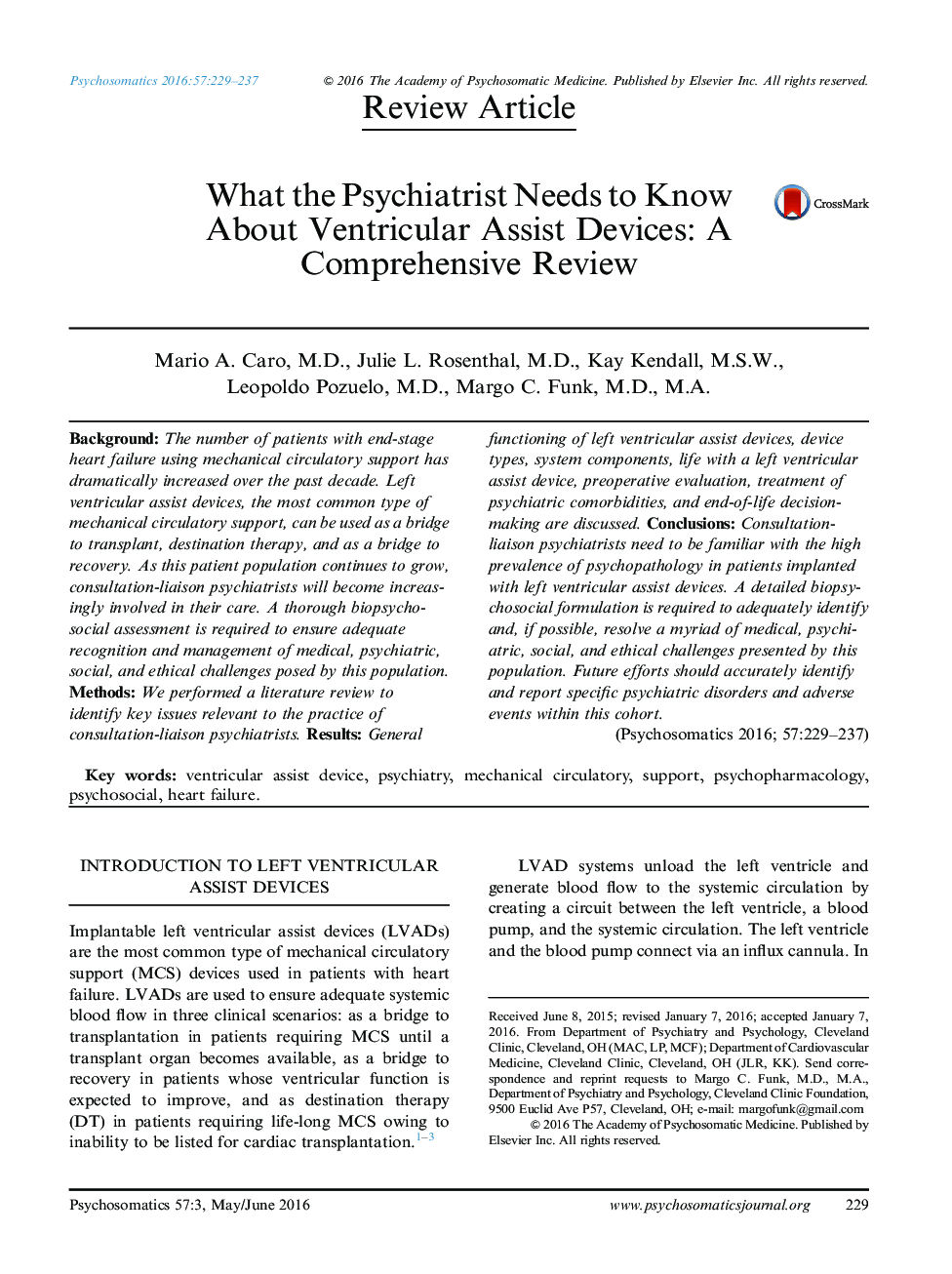| Article ID | Journal | Published Year | Pages | File Type |
|---|---|---|---|---|
| 337334 | Psychosomatics | 2016 | 9 Pages |
BackgroundThe number of patients with end-stage heart failure using mechanical circulatory support has dramatically increased over the past decade. Left ventricular assist devices, the most common type of mechanical circulatory support, can be used as a bridge to transplant, destination therapy, and as a bridge to recovery. As this patient population continues to grow, consultation-liaison psychiatrists will become increasingly involved in their care. A thorough biopsychosocial assessment is required to ensure adequate recognition and management of medical, psychiatric, social, and ethical challenges posed by this population.MethodsWe performed a literature review to identify key issues relevant to the practice of consultation-liaison psychiatrists.ResultsGeneral functioning of left ventricular assist devices, device types, system components, life with a left ventricular assist device, preoperative evaluation, treatment of psychiatric comorbidities, and end-of-life decision-making are discussed.ConclusionsConsultation-liaison psychiatrists need to be familiar with the high prevalence of psychopathology in patients implanted with left ventricular assist devices. A detailed biopsychosocial formulation is required to adequately identify and, if possible, resolve a myriad of medical, psychiatric, social, and ethical challenges presented by this population. Future efforts should accurately identify and report specific psychiatric disorders and adverse events within this cohort.
